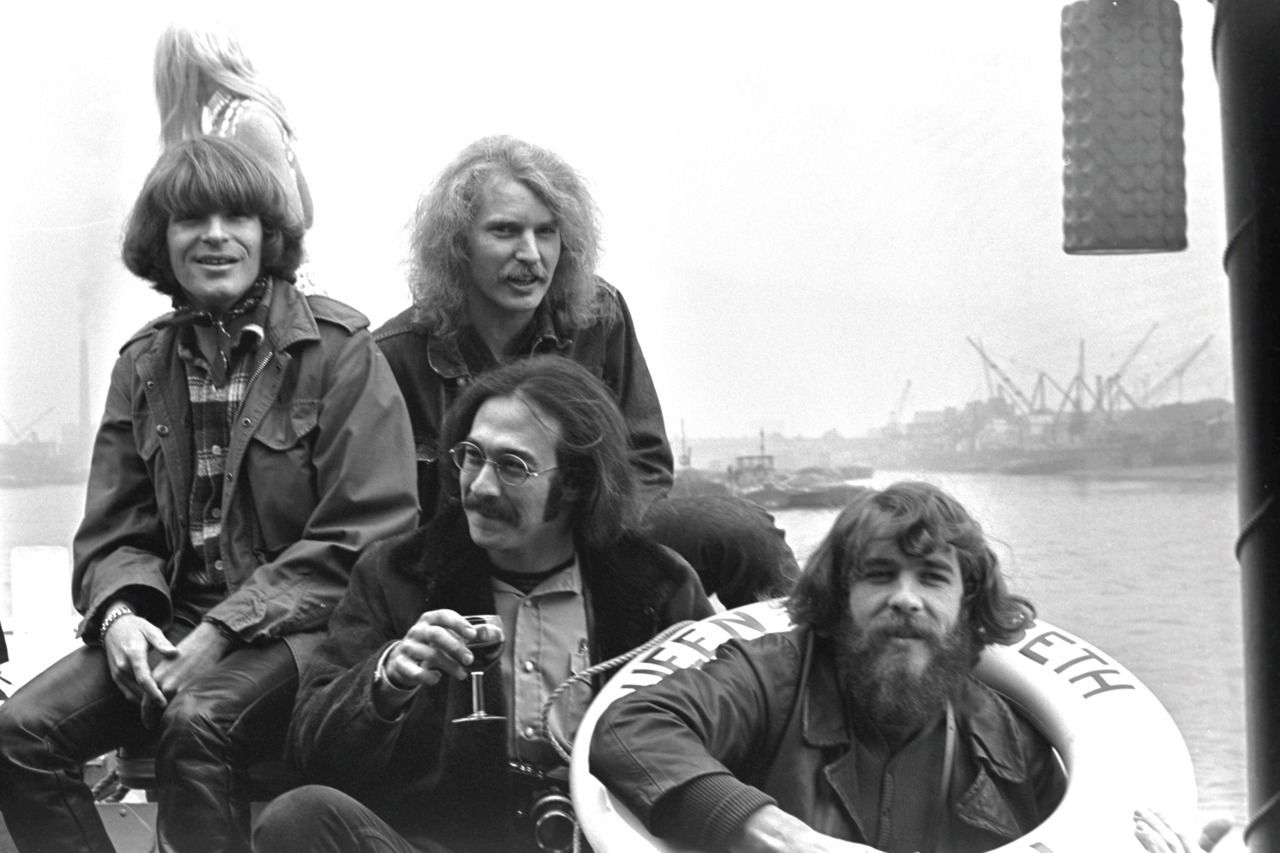
A furious cry against inherited privilege, “Fortunate Son” is Creedence Clearwater Revival turning raw rock energy into a moral reckoning—short, sharp, and impossible to ignore.
When Creedence Clearwater Revival released “Fortunate Son” in September 1969, it arrived like a clenched fist in the middle of a divided America. Issued as a double A-side single with “Down on the Corner”, the song climbed to #3 on the Billboard Hot 100, while its companion reached the same peak—an unusual and telling chart achievement that reflected how deeply both songs connected with the public at that exact moment. The track also appeared on CCR’s fourth studio album, Willy and the Poor Boys, released in November 1969, which peaked at #3 on the Billboard 200 and quickly became one of the defining albums of the era.
But numbers alone cannot explain why “Fortunate Son” still cuts as sharply today as it did more than half a century ago.
The song was written by John Fogerty, the band’s principal songwriter, vocalist, and guitarist, during the height of the Vietnam War. Contrary to a common misunderstanding, “Fortunate Son” is not a general anti-war anthem in the abstract. It is far more specific—and far more accusatory. Fogerty was aiming directly at class inequality, at the way political and social elites could avoid the consequences of the very wars they publicly supported. The “fortunate son” of the title is not the soldier sent overseas; it is the one who never has to go.
Fogerty later explained that the inspiration came partly from the public image of David Eisenhower, grandson of President Dwight D. Eisenhower, who married Julie Nixon while the war raged on. To Fogerty, this symbolized a painful contrast: some families wrapped themselves in flags and patriotic language, while their sons were safely shielded from the draft. Others—working-class boys with no such protection—paid the real price.
Musically, “Fortunate Son” is deceptively simple. It runs just over two minutes, built on a driving rhythm, biting guitar riffs, and Fogerty’s unmistakable, urgent vocal delivery. There is no excess here—no extended solos, no ornamental flourishes. The song moves like a protest march compressed into sound. Every second feels intentional, every line sharpened.
The lyrics are blunt to the point of discomfort. “Some folks are born silver spoon in hand…” is not poetic abstraction; it is social commentary stripped of politeness. Fogerty doesn’t ask questions—he makes declarations. And when he reaches the line “It ain’t me, it ain’t me, I ain’t no fortunate one,” the repetition feels like both defiance and exhaustion. This is the voice of someone who knows exactly where he stands, and exactly who bears the burden.
What makes “Fortunate Son” so enduring is that it refuses to age into nostalgia. Unlike many protest songs tied tightly to a single conflict, its central message transcends the Vietnam era. It speaks to any time when power is insulated from consequence, when sacrifice is demanded unevenly, when patriotism is used as decoration rather than responsibility. That universality is why the song continues to surface in films, documentaries, and moments of political reflection—sometimes controversially misused, but never neutralized.
There is also a bitter irony in the way the song has been misunderstood over the years. It has occasionally been played at patriotic events or political rallies that embody exactly the kind of privilege Fogerty was criticizing. That misreading only reinforces the song’s importance. “Fortunate Son” doesn’t flatter authority. It challenges it. And challenges are often the first things people stop listening to carefully.
Within Willy and the Poor Boys, the song serves as the album’s moral spine. Surrounded by rootsy rock, blues, and Americana textures, “Fortunate Son” stands out not because it abandons those traditions, but because it uses them to speak uncomfortable truths. CCR’s genius was never about complexity—it was about clarity. And here, the message is crystal clear.
For listeners who lived through the late 1960s, the song can still trigger a flood of memory: draft notices, nightly news footage, names read aloud, futures interrupted. For later generations, it often becomes a first lesson—that rock music can carry anger with purpose, and simplicity with weight.
Ultimately, “Fortunate Son” endures because it understands something timeless: injustice is often loudest where privilege pretends to be invisible. In just a few verses, Creedence Clearwater Revival captured that truth with a force that has never dulled.
It is not a song about hating one’s country.
It is a song about loving fairness enough to demand it.